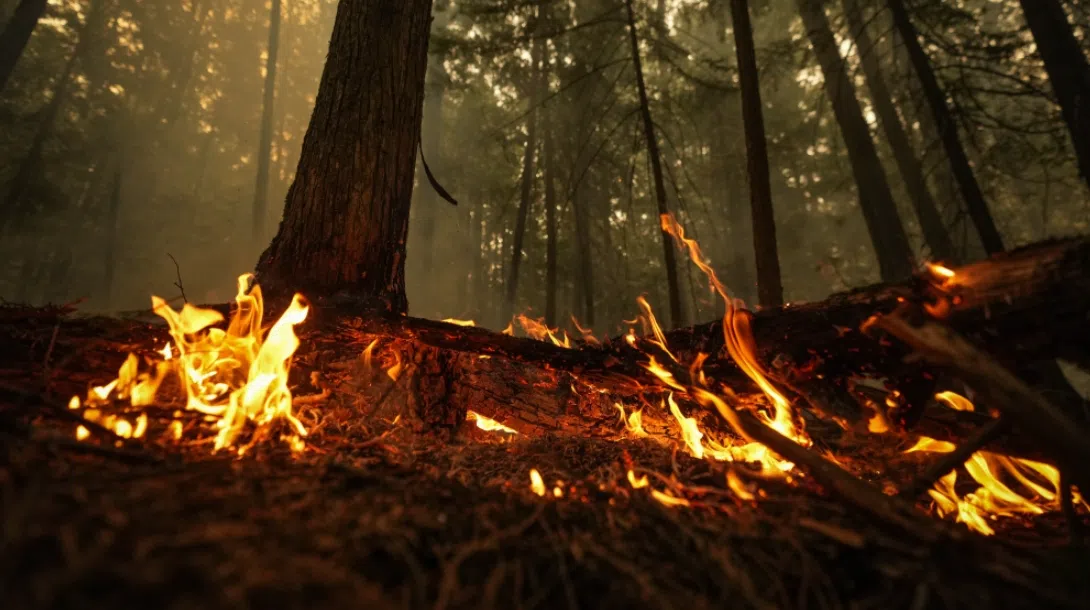
A hot spot from the Lower East Adams Lake wildfire burns in Scotch Creek on Aug. 20, 2023. (Photo via Darryl Dyck/The Canadian Press)
A wildfire expert at Thompson Rivers University in Kamloops is tipping his hand on a national wildfire response.
Mike Flannigan says he can see the BC Wildfire Service working together with a National Wildfire Service to help speed up the deployment of crews and resources from other parts of the province, during extreme wildfire situations.
Flannigan says this as he points to a recent poll, suggesting 75 per cent of Canadians support a wildfire fighting effort.
“I could see a national one working in those extreme periods and be hand and glove with the BC Wildfire Service. They (BC Wildfire Service) will be in charge and could access these quickly deployed resources during those extreme situations when we have 100 new fire starts,” said Flannigan.
“BC does not have enough crews to deal with 100 new fire starts in 24 hours, but calling in help, ahead of time would hopefully let us deal with it.”
While Flannigan says support already does come in from crews across the country during these extreme fire situations, he says it sometimes comes too late.
“We get crews from Ontario and Quebec come to come help us, but, it takes three days for those crews to get to the fire in BC typically; but we need them right now, we don’t we don’t need them three days from now, we need them now.”
This prompting Flannigan to say there is room for improvement in enhancing the early warning system to ensure they can better prepare for extreme wildfire situations on the way.
“That’s why an early warning system that works can be a real benefit because we know where the extreme fire weather would be, we have a pretty good idea where the new fire starts will be and where the existing fires are.”
Additionally, Flannigan suggests a national response would also reduce the need to call in international crews to help with the firefight, as has been the case in the past number of years.
“The 2023 wildfire season was exceptional and we had help from different areas around the world, and the Canadian Armed Forces… If we have large enough national effort, I think almost every year we can deal with it ourselves — with the exception if we ever see another 2023.”
“BC has an agreement with Oregon, Washington, and California so we can call people in from there as well; last year, the states were very quiet, so they came and helped us,” said Flannigan.
“But I think we could do it so we don’t need people from Australia, South Africa, or Brazil.”







